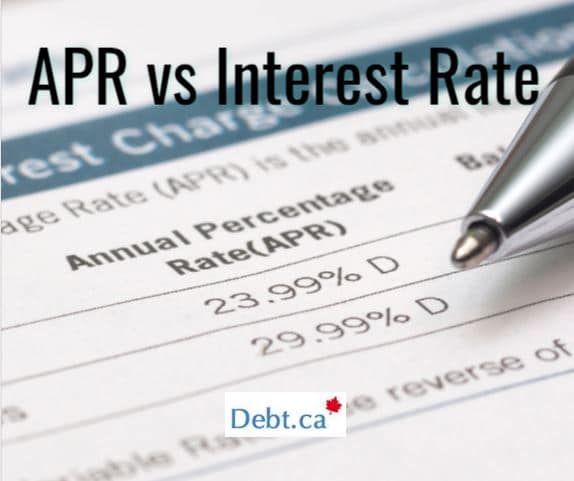You may have seen Guaranteed Investment Certificates (GIC) offered by your bank. What are they and how do they work? In this article, we’ll explore the ins and outs of GICs. By the end of this read, you will better understand if a Guaranteed Investment Certificate is the right choice for you. Keep reading to learn more!
What is a GIC?
Guaranteed Investment Certificates are timed deposits that are sold by banks, financial institutions, and credit unions. It’s important to note GICs are not the same as savings accounts. There are some key differences which we’ll cover later. However, GICs are a vehicle to earn interest on your savings.
How do GICs work?
The first key aspect of GICs is they have rigid terms. They can be anywhere from three months, to five years. Each financial institution differs in its term offerings. As a depositor, you can choose the term you’d like.
From there, you can place a principal deposit into a GIC. Some institutions have minimums for deposits, usually around $500 to $1,000. The principal amount is locked until the end of the term. At the end of the term, your principal is paid back to you along with any interest accrued.
Interest rates and GIC
Often, the longer the term the higher the interest rate you’ll get but, it depends on the institution. The idea being that the bank can pay you more interest because they are able to use your money for longer. How often interest is paid also differs depending on where you buy your GIC.
What is the optimal economic climate to invest in GIC?
When interest rates and investment income is unstable elsewhere, it’s optimal to put money into GICs. This is because GICs guarantee that your principal deposit will be returned to you. You’ll also know exactly how much interest you’ll earn based on your principal and term before purchasing. In addition, financial institutions rarely fail to pay out GICs making them a low-risk investment.
With that being said, that doesn’t mean other savings and investments are lost. Being more susceptible to market volatility, those investments don’t offer the same certainty that, at the very least, you will get your principal investment back.
What are the unique features of a GIC?
Below are the unique features of a GIC:
- Guaranteed return of your principal and interest.
Minimum investment is only $500 making it an accessible option for most people. - Can be bequeathed to the person of your choice.
- TFSA, RRSP, RRIF and RESP eligible.
There are no fees associated with the purchase or sale of GICs.
Depending on the type of GIC you may be able to withdraw your money early without penalty.
GICs with terms under 5 years are insured by CDIC for $100,000. - Both registered and unregistered GICs are available.
Types of GIC
Below are some common types of GICs:
Fixed-rate
These are the most common, traditional type of GICs. They pay a fixed rate and have rigid terms.
Variable
This type of GIC has a variable interest rate. Usually, it’s the prime rate, plus an additional rate. If the prime rate goes up, you’ll earn more. If the prime rate goes down, you’ll earn less. You will know the term with a variable GIC, but not the full interest payout until the GIC matures.
Cashable
A cashable GIC is the same as a fixed-rate GIC, however, you can withdraw your money early, if needed, without penalty. Often, cashable GICs have lower interest rates compared to fixed-rate. This is to account for the fact that you can withdraw your funds at any moment.
Market-Linked
Market-linked GICs are unique in that the principal deposit remains guaranteed. However, you will earn more (or less) interest depending on the changes in the stock market.
Registered
Any GIC registered with the Canadian government is a registered GIC. These particular GICs are tax-free, however, they come with age and contribution restrictions
Non-registered
Non-registered GICs are those outside of the ones registered with the government. These GICs incur taxes, however, there are no age or contribution restrictions.
GIC Pros and Cons
Pros
- Ideal for specific savings goals, like paying for tuition or a down payment on a home
- Low-risk investment
- Accessible investments, nearly every financial institution offers them
Cons
- Opportunity cost of investing your money elsewhere and potentially earning more interest
- Difficult to get money out if you need it
- Interest paid may not pace with inflation
What if you need to withdraw early?
While it’s not impossible to access your GIC funds, experts recommend leaving them alone. By withdrawing early, you will likely lose some, or all, accrued interest on the GIC as a penalty. That’s why it’s best to keep the money in the GIC until the end of the term. To avoid withdrawal penalties, be sure to keep enough money in an emergency fund to cover unexpected costs should they arise.
GIC terms to know
Here are some helpful terms to know surrounding GICs:
Term
The term refers to the period of time your deposit is invested in a GIC.
Interest rate
The percentage yield you will earn in exchange for depositing your money into a GIC. A variety of interest rate options are available.
Deposit insurance
The Canadian Deposit Insurance Corporation (CDIC) ensures GIC deposits held within a member bank are safe if the institution fails.
How do GICs differ from a savings account/HISA?
GICs and savings accounts are similar because you earn interest on your deposited money. Regular and high-interest savings accounts, allow you to access or withdraw your money at any time. Often this is convenient as an emergency fund. That way, if an unexpected cost arises or run into cash flow problems, your savings are readily available.
On the other hand, you cannot readily access funds in a GIC. Finally, GICs usually pay higher interest compared to savings accounts. This is true even when comparing high-interest savings accounts.
GIC alternatives
If you don’t want to put your money into a GIC, you can consider these options to earn money on your savings:
- High-interest savings accounts
- Bonds
- Stocks (particularly stocks that pay high dividends)
- Treasury bills
- TFSA or RRSP
Final Thoughts
GICs are ideal for earning interest on your savings set aside for a specific purpose. However, it’s best to invest your money across various investment vehicles – not just one. This way, you’re creating investment security by being less susceptible to economic changes by diversifying your money across multiple investments.
Facing financial hardship because of an investment that didn’t go as planned? Debt.ca can help. Reach out today to learn more!









